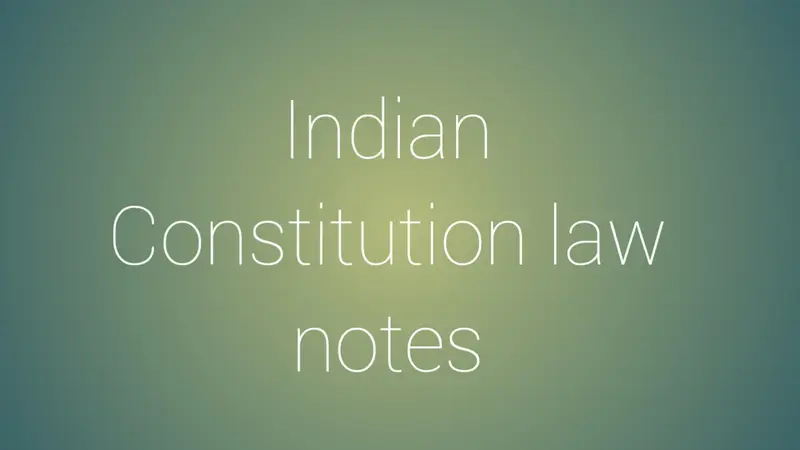Bijoe Emmanuel v. State of Kerala or National Anthem Case (1987)
- The Supreme Court held that the student’s holding and expressing their beliefs on religion is their
- Right to Freedom of Conscience.
- It ruled that their expulsion violated fundamental rights under Articles 19(1)(a) and 25.
- The Supreme Court, Emphasising the significance of religious freedom as a Constitutional tenet (सिद्धांत).
सुप्रीम कोर्ट ने इस केस Bijoe Emmanuel v. State of Kerala or National Anthem Case (1987) में कहा कि छात्रों के विवेक और धर्म की स्वतंत्रता का अधिकार उनकी मान्यताओं को रखने और व्यक्त करने दोनों में फैला हुआ है।
कोर्ट ने कहा कि उनको विद्यालय से बाहर करना उनके मौलिक अधिकार जो की अनुच्छेद 19(1)(a) और अनुच्छेद 25 में उनके मौलिक अधिकार का हनन हुवा है ।
सुप्रीम कोर्ट ने इस केस Bijoe Emmanuel v. State of Kerala or National Anthem Case (1987) में कहा कि संवैधानिक सिद्धांत , धार्मिक स्वतंत्रता को महत्त्व देता है ।
What is the meaning of Right?
- The meaning of Right is a claim and is inherent which has to be secure by law.
अधिकार का मतलब, एक अंतर्निहित (जन्मजात) तथा किसी के ऊपर अपना दावा अथवा अपना हक बताता है जिसे कानून द्वारा सुरक्षित किया गया है।
A.S. Narayan v. State of A.P. (1996)
The supreme court has held that the word religion is personal to the person having faith and believe in the religion.
Religion is that which finds a man with cosmos his creator or Supreme Power.
Meaning of Freedom
- Freedom meaning refers to not being controlled by somebody else, the quality of being frank, open, or outspoken.
स्वतंत्रता का अर्थ है कि किसी और के द्वारा नियंत्रित न होना, स्पष्टवादी, खुला या मुखर होने का गुण, मतलब किसी के आधीन न रहकर खुद की आजादी में रहना ।
What is meant by religion?
- Religion means a philosophy that involves a belief in a higher power, along with a set of rituals, traditions, and practices associated with that belief.
धर्म एक दर्शन की तरह है जिसमें एक उच्च शक्ति में विश्वास के साथ-साथ उस विश्वास से जुड़े अनुष्ठानों, परंपराओं और प्रथाओं के एक समूह शामिल होते है।
Freedom of conscience and free profession, practice and propagation of Religion
Freedom of conscience
- Conscience, as the human brain understand good and bad,means it covers all ethics and values of a human being, cherishes, whether of religious nature or not.
- Freedom derived here as until it do not harm others.
- Subject to public order,
- Morality and health
- All persons are equally entitled to freedom of conscience
- And the right freely to profess,
- Practise and propagate religion.
मानव मस्तिष्क अच्छे और बुरे को समझता है, और यही दुसरे प्राणी से मनुष्यता को अलग करती है, अर्थात मनुष्य सभी नैतिकता और मूल्यों को भी शामिल करता है।
चाहे वह धार्मिक प्रकृति का हो या नहीं, Conscience कहते है। और freedom of conscience तब तक है जब तक ये आजादि दुसरो को नुकसान नहीं देती।
Practice and propagation of Religion Article 25 case
Rev. Stainislaus v. State of Madhya Pradesh, (1977)
In this case Rev. Stainislaus v. State of Madhya Pradesh Supreme Court held that the right to freedom of religion and the right to propagate one’s religion as a fundamental right under the Indian Constitution.
This case Rev. Stainislaus v. State of Madhya Pradesh has also had a significant impact on the legal landscape of India, especially with regard to anti-conversion laws.
Practice and propagation of religion is fundamental right but it shall not be against public order, morality, forcefully conversion.
Ismael faruqui v. Union of India, (1994)
In Ismael faruqui v. Union of India, (1994), supreme court held that the right to worship is an essential part of a religion but it does not include the right to worship at any place and every place.
Subject to public order Landmark case Article 25 Constitution
The Commissioner, Hindu Religious Endowments, Madras vs. Sri Lakshmindra Thirtha Swamiar of Sri Shirur Mutt (1954)
In the case of Commissioner, Hindu Religious Endowments, Madras vs. Sri Lakshmindra Thirtha Swamiar of Sri Shirur Mutt (1954).
- The Supreme Court held that the term ‘religion’ includes all beliefs and practices that are integral to a particular religion and state could regulate religious practices if they were against public order, morality, or health.
सुप्रीम कोर्ट ने इस केस The Commissioner, Hindu Religious Endowments, Madras vs. Sri Lakshmindra Thirtha Swamiar of Sri Shirur Mutt (1954) में कहा कि “धर्म” से जुड़े सारे मान्यताये और विस्वाश, मौलिक अधिकार का हिस्सा है।
लेकिन अगर धर्म से जुडी कोई मान्यता अगर सार्वजनिक व्यवस्था, नैतिकता, या स्वास्थ्य के विरुद्ध होगी तो राज्य ऐशी मान्यताओं को संशोधित तथा समाप्त कर सकती है।
Shayara Bano v. Union of India (Triple Talaq case) (AIR 2017)
- The Supreme Court held that ‘triple talaq or talaq-e-biddat’ is unconstitutional and manifestly arbitrary.
- The majority held that the practice of triple talaq is not protected by the exception under Article 25 of the Constitution.
Article 25 of indian Constitution
Constitution Article 25(1) on religion.
Subject to public order, morality and health and to the other provisions of this Part, all persons are equally entitled to freedom of conscience and the right freely to profess, practise and propagate religion.
Article 25(2) Constitution
Nothing in this article shall affect the operation of any existing law or prevent the State from making any law—
Constitution Article 25(2)(a)
- (a) regulating or restricting any economic, financial, political or other secular activity which maybe associated with religious practice;
Article 25(2)(b)
- (b) providing for social welfare and reform or the throwing open of Hindu religious institutions of a public character to all classes and sections of Hindus.
Explanation 1 of Article 25 Constitution
- The wearing and carrying of kirpans shall be deemed to be included in the profession of the Sikh religion.
Explanation II of Article 25 Constitution
- In sub-clause (b) of clause (2), the reference to Hindus shall be construed as including a reference to persons professing the
- Sikh,
- Jaina or
- Buddhist religion,
- and the reference to Hindu religious institutions shall be construed accordingly.

